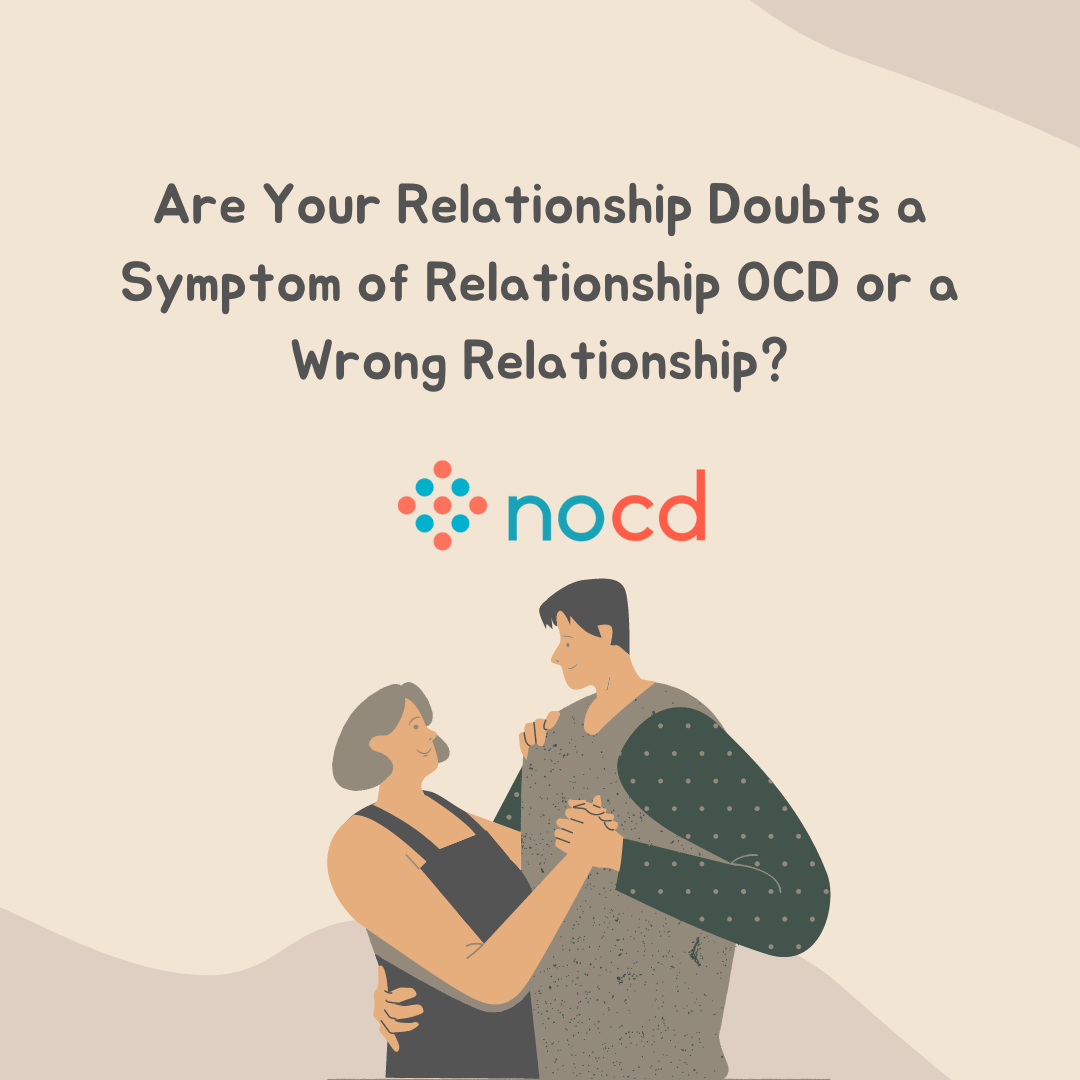A sleep divorce refers to couples mutually agreeing to sleep separately. This arrangement is generally intended to help partners sleep more soundly. It’s important to note that this is not the same as divorce, and it does not inherently suggest problems in a relationship. Instead, it’s a collaborative solution to mitigate sleep problems or potential resentment.
Relationships aren’t perfect. Navigate the ups and downs in therapy.
BetterHelp has over 20,000 licensed therapists who provide convenient and affordable online therapy. BetterHelp starts at $65 per week. Take a Free Online Assessment and get matched with the right therapist for you.
What Is a Sleep Divorce?
The importance of high-quality sleep can’t be overstated. A sleep divorce is when a couple chooses to sleep in separate beds. Furthermore, poor sleep or sleep deprivation can harm your mental health.2 That said, couples aren’t inherently in sync regarding their sleep needs or schedules. These mismatched sleep priorities can cause relationship problems. When this is the case, a sleep divorce may be a helpful solution.
Common reasons people get a sleep divorce include:
Different Sleep Schedules
Some couples work opposite schedules, which inherently affect the hours spent asleep. In addition, research supports the idea that we tend to gravitate toward being either early birds or night owls.2 If you tend to go to sleep or wake up at dramatically different times, sleeping in the same bed can feel disruptive.
Partner Snores
Snoring is common, and it may be associated with certain issues like deviated septums, enlarged adenoids and tonsils, sleep apnea, and overall health. A partner’s snoring can range from being mildly distracting to downright intolerable. It may be especially challenging to cope with a partner’s snoring if you struggle with sleep problems.
Different Sleep Preferences
Couples may have different preferences regarding bedroom specifics, such as the type of mattress or bedding, room lighting, background noise, and temperature. Sometimes compromising is possible. Other times, partners decide to sleep in separate bedrooms so everyone can have optimal sleep.
New Baby
It’s no secret that new parents lose significant sleep during the first year of their baby’s life.3 Some parents take “sleep shifts” where one partner stays up with the baby while the other catches up on sleep. Other parents have co-sleeping arrangements where the baby sleeps in the room with one parent. A sleep divorce may give both parents more opportunities for rest.
Sleep Disorders
Sleep issues like narcolepsy, obstructive sleep apnea, sleepwalking, hypersomnia, and insomnia can all be complex in nature.4 While there is treatment, the recovery process isn’t necessarily linear. Furthermore, the compounding effect of a few bad nights of sleep can affect both partners. For this reason, some partners choose to sleep in different beds.
Partner Moving Around Often/Restless Legs
Restless legs can cause involuntary jerking and kicking throughout the night. This can cause disrupted sleep and physical discomfort for the other partner. Some couples share a bed and use body pillows or seek specialized sleep treatment to resolve the underlying issues. However, others decide the easiest solution is to sleep separately.
Better Sex Life
Some couples find that sleeping separately has improved their sex life. Being apart can allow you to miss one another, which can be a key component in desire. Sleeping in separate bedrooms also may require you to be more creative with intimacy, which can strengthen your sexual connection.
Benefits of Sleep Divorce
Couples who benefit from a sleep divorce generally enjoy better sleep hygiene once they are in different beds. They may also find that their relationship improves. A sleep divorce may be especially beneficial if the couple experienced conflict related to sleep problems. Some couples create rules within their divorce. For example, they may sleep separately on some nights of the week and together on other nights. Other couples who decide upon a sleep divorce always sleep in different beds.
Possible benefits of a sleep divorce include:
- Better quality of sleep
- Less fighting about sleep differences
- Improved emotional intimacy
- Ability to honor individual needs
- Respects different schedules and priorities
Drawbacks of Sleep Divorce
A sleep divorce isn’t always the best solution for couples. Some people in conflict-laden relationships may resort to this option to increase their distance. Instead of addressing their relational problems, they might perpetuate more of an avoidance approach. Over time, a sleep divorce can cause more ruptures and adversely affect relationship dynamics.
Possible downsides of a sleep divorce include:
- Decreased amount of quality time
- Avoidance of intimacy issues
- Perpetuating problems in sexless relationships
- Loneliness in one or more partners
- Resentment (if both partners aren’t on the same page about the arrangement)
How to Avoid a Sleep Divorce
A sleep divorce isn’t the only option for couples struggling with sleep issues. As a first defense, if one person has a sleep disorder, it’s important to seek medical treatment. Sleep aids like headphones, white noise machines, sleep masks, and weighted blankets can help one or both partners. You may want to try these alternative methods before leaving the bedroom altogether.
Ready To Invest In Improving Your Relationship
OurRelationship (Free Couples Course) – OurRelationship has been proven to help couples improve communication, intimacy, and trust. 94% would recommend it to a friend. Get Started
Individual Therapy – Happy, healthy relationships start with YOU. Try online therapy and bring your best self to your relationships. BetterHelp has over 20,000 licensed therapists who provide convenient and affordable online therapy. Visit BetterHelp
Couples Therapy – Work together to restore trust and rekindle loving feelings. Video and text based couples counseling start at $50 per week. Try Online-Therapy
Tips for a Successful Sleep Divorce
There’s nothing wrong with sleeping in different rooms. But if you and your partner decide it’s time to separate for sleep, there are some steps you should consider taking before getting into your new bed. Ultimately, this divorce should be about bringing you two closer, so it’s wise to prepare for what this change will do to your relationship.
Five tips for a successful sleep divorce include:
1. Try It As a Trial
You don’t have to take an all-or-nothing approach right away. Some couples sleep separately for a week before assessing how well it works. Others might resume sleeping together on weekends or when they’re on vacation. Consider taking a trial approach first and checking in with each other to see how it went.
2. Schedule Time to Connect Intimately
Regardless of where they sleep, all couples should prioritize connection with one another. Intimacy can be physical, emotional, and sexual, and many people find that the categories overlap. It’s important to schedule this quality time together. Having even a few tuned-in moments a day can make a significant difference in your relationship satisfaction.
3. Express Appreciation
If you’re having a sleep divorce while your partner works on specific sleep issues, it’s important to share your gratitude for their efforts. Change is hard, and it sometimes entails dramatically overhauling parts of the daily routine. Make it a point to acknowledge the steps your partner is making in the right direction. As a benefit, research shows continuously expressing gratitude will likely make you both happier.5
4. Avoid Judging Your Partner’s Preferences
Your partner is entitled to sleeping later or earlier or having the bedroom a certain way. Even if you find their preferred mattress physically uncomfortable, or you have no idea how they sleep with the TV on in the background, you should strive to be empathic and supportive. We all have unique parts of ourselves, and judging only creates more tension.
5. Check In With Each Other
Open, assertive communication is the heart of healthy relationships. With that, try to make it a point to continue assessing how well the sleep divorce is going for the both of you. Talk about the changes you’ve noticed, including the good and bad parts! If you want to modify something else, consider bringing it up.
When to Seek Professional Help
Some couples might seek couples or marriage counseling if they’re struggling with sleep issues. This type of therapy can be beneficial if your sleep problems affect the overall quality of your relationship. It can also be helpful if you feel your current sleep divorce arrangements have caused problems between you and your partner.
When looking into support options, it’s important to know the differences between therapists, counselors, and psychologists. Each professional has unique expertise and ways of intervening with specific issues. An online directory can be a great starting point when looking for a new provider. Ultimately, you should work with someone who can support your goals and challenge you when appropriate.
In My Experience
It’s so important to remember that every couple needs to find the boundaries and practices that work best for them. There is no “normal” way to act within a relationship. That said, it’s essential that couples find a rhythm that provides a mutual sense of safety and support. This is one of my main goals when working with either individuals or couples. If something isn’t working, it deserves to be explored and unpacked!
Additional Resources
To help our readers take the next step in their mental health journey, Choosing Therapy has partnered with leaders in mental health and wellness. Choosing Therapy is compensated for marketing by the companies included below.
BetterHelp (Online Therapy) – Relationships aren’t easy – a licensed therapist can help. Live sessions can be done via phone, video, or live-chat. Plus, you can message your therapist whenever you want. Visit BetterHelp
Online-Therapy.com (Online Couples Therapy) – Do you and your partner want to work together to have less arguments and better communication? Are there children involved and being caught in the crossfire? Do you love each other but are having a rough time operating as one unit? Couples therapy can help. Get Started
OurRelationship (Free Couples Course) – OurRelationship has been proven to help couples improve communication, intimacy, and trust. 94% would recommend it to a friend. Get Started
Relationship Newsletter (Free From Choosing Therapy) – A newsletter for those interested in improving relationships. Get helpful tips and the latest information. Sign Up
Best Online Marriage & Couples Therapy Options Marriage and couples therapy can be helpful and a worthwhile investment for couples who want to seek help with their relationship. Which online platform will work best for you will depend on what issues you want to work on, what your goals are for your relationship, the cost, and if it’s available in your state. OurRelationship - Free Relationship Course Are Your Relationship Doubts a Symptom of Relationship OCD or a Wrong Relationship? Have you ever wondered to yourself, “What if I’m not in love with my partner anymore? What if I’ve never been?” For some people, these thoughts are more than occasional. They can become constant and overwhelming, and even lead to compulsive actions like seeking reassurance to quiet them. When these thoughts and actions rise to the level of obsessive-compulsive order (OCD), they are known as relationship OCD, or ROCD.


Find a therapist for relationship issues
Get the help you need from a therapist near you
City or zip Search









